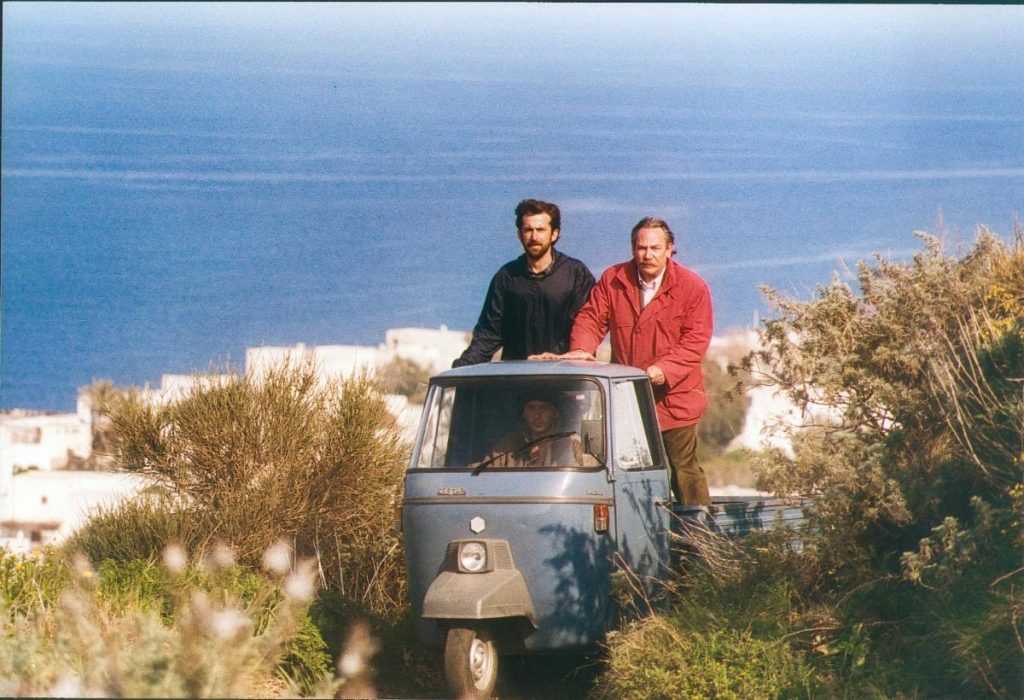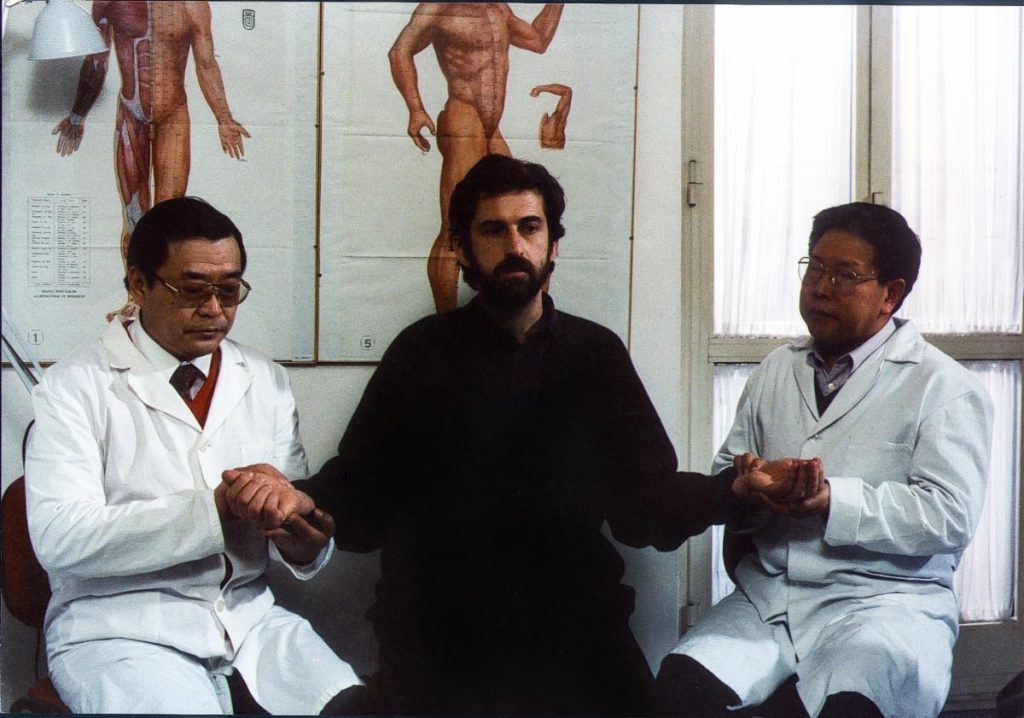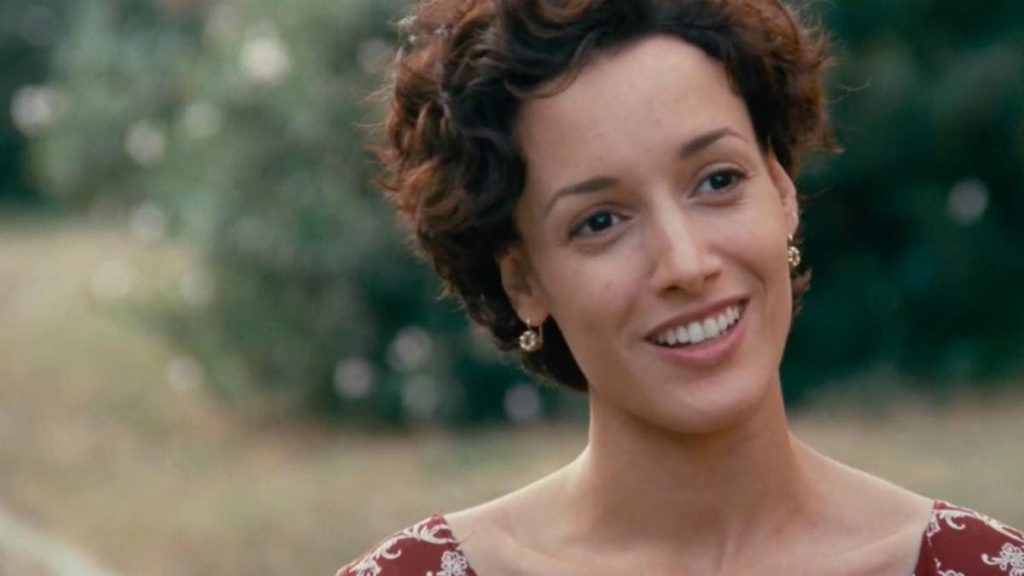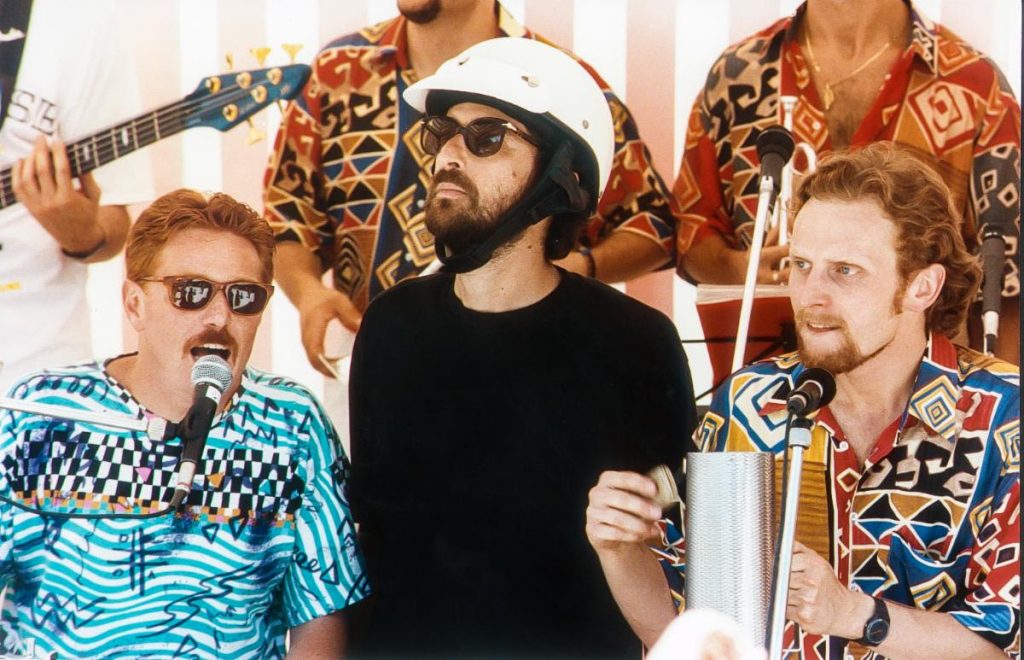While not especially revered in the United States, Italian director Giovanni “Nanni” Moretti has made quite an impression on European audiences for his humorous examinations of the human condition – life and death and the like – for approaching nearly fifty years. At one point it might have been in favor to compare the director to Woody Allen, but without a doubt the auteur would likely try to avoid such associations altogether. Audiences in the US who know him may have first heard his name upon winning the Best Director Award at the 1994 Cannes Film Festival for Caro Diario (Dear Diary), a unique anthological film in which the filmmaker plays with some of his favorite themes in a new quasi-autobiographical way. The journey is breezy, but it requires the audience to abandon what they believe to be a traditional plot structure. Over three chapters Moretti takes you on a heightened travelogue that harnesses the freedom of a secret diary entry.
In the first chapter, Moretti takes his vespa through Rome which in turns feeds his free-flowing thoughts. A recurring theme of this chapter is his love of cinema. Those more familiar with his work will be particularly amused by a scene of Moretti visiting a movie theater and taking his chance to push back against the characters on screen he views as too self-flagellating, perhaps a subtle nod to the self-seriousness of his earlier work. He also forms an outrageous crusade against a journalist who praised Henry: Portrait of a Serial Killer in a manner that he finds unacceptable. Yet this is the same person who unabashedly loves Flashdance and does not know how to react when he meets Jennifer Beals (in an unexpected cameo) on the street. His intentions drift from indignation to reflective to something more poignant; a final scene in which he visits the place where Pier Paolo Pasolini was killed shifts from silly fun to something more viscerally mournful. An abrupt cut to the next chapter reminds you that this is a narrative with real purpose behind it.

The middle section feels like the best balance of structure and absurd social commentary. The main thrust of this segment involves Moretti searching for a peaceful place to write his next movie (in fact, the one we are watching). As he vacates Rome for the Aeolian Islands, he meets up with his old friend Gerardo, a man who proudly boasts that he detests television as he devotes time to studying James Joyce’s Ulysses. Moretti very skillfully tackles various social vices in contemporary life as they travel from island to island in search of peace. One island is plagued by traffic while another is overrun by swinging singles. The island of Salina feels like a community out of a dystopian tale as every parent seems to be under the thumb of their children. Not to mention the building comedy of Gerardo slowly being exposed to television during their passage from island to island, and changing his tune when his love of soap operas become ravenous. Moretti does not overstate his feelings on the state of society, but his critique is blistering enough with his confession that his only peace is when he has left where he has just been but has not yet arrived to where he is going.
The final chapter finds Moretti breaking down the barriers between the film and his life as he reveals a real-life medical scare that he went through some time earlier. There is much frustration as he relives the moment where he went to the doctor with symptoms of itching and insomnia, which led to a series of unsure diagnoses that did not match up to what he really had – a mass on his lung that would be determined to be lymphoma. Moretti lays himself bare as he shows off x-rays of his lungs and home video footage of his chemotherapy, which thankfully worked. What has been an unstructured journey thus far comes into greater focus as a form of rebirth for the filmmaker. As someone who flirted with the end, he is now more attuned to the world at large and everything it has to offer. It adds some genuine meaning to the moments that at first seem superfluous. Caro Diario is a fun and touching portrait of life and all of the things we take for granted.

Video Quality
Caro Diario comes to Blu-Ray with a new digital AVC encoded 1080p transfer in its original 1.66:1 derived from a new 2K digital restoration. The presentation comes close to appearing pristine, but the restoration looks pretty excellent throughout most of the runtime. There are occasional minor specks of print damage, but overall clarity and detail is mighty impressive. The shots exploring the cities specifically are packed with little details in the scenery that are easily noticeable thanks to this transfer. The picture tends to run a bit soft in long shots, likely to be contributed to the source material, but colors are well saturated in a visually splendid way. Skin tones are natural and consistent with subtle facial features easily noticeable in closeup. Black levels hold up well with very little in the way of crush. Digital noise does not present as a major issue here. This presentation is very beautiful and likely looks better than it ever has before. Film Movement Classics has done a fantastic job with this one.
Audio Quality
The Blu-Ray disc comes with a very capable LPCM 2.0 track in the original Italian with optional English subtitles. The worldly score sounds great throughout the duration of the film, as it settles you into the atmosphere of the setting. There is never a moment where it threatens to overwhelm the dialogue, and the track maintains a good balance so that dialogue comes through clearly. Environmental sounds such as city noises or weather effects are rendered well alongside everything else. There does not seem to be any majorly noticeable instances of age-related wear and tear. Film Movement Classics has given this film the perfectly preserved, faithful audio presentation it deserves.

Special Features
This Blu-Ray set includes a multi-page booklet featuring the essay “I Am A Splendid Forty-Year-Old” by author Millicent Marcus. The essay provides a great amount of context to the filmmaker at the center of this narrative as well as an analysis of the themes of the story. The on-disc special features are as follows:
- Dear Nanni – Notes On A Moretti Film: A 31-minute archival featurette which gives you a glimpse behind the scenes of the production along with interviews with Moretti.
- Deleted Scene: A three-minute collection of unused scenes is provided here featuring Moretti negotiating his terms of filming and visiting a spring.
- Trailers: The new two-minute trailer for Caro Diario is presented here which does a nice job of selling the film. There are also trailers provided for Elena Ferrante On Film and Ugly, Dirty And Bad.
Final Thoughts
Caro Diario is a funny, subversive and moving journey which captures the unique personality of filmmaker Nanni Moretti. The locations that he visits are a visual feast, and the wry humor and social commentary he injects into his travels are pointed without being mean-spirited. Taken as individual parts, there are many moments to really enjoy throughout the film, but it is when you view the film as a whole that you get what an impressive piece of filmmaking it is. Film Movement Classics has released a Blu-Ray featuring a top-notch A/V presentation and a nice assortment of special features. Recommended
Caro Diario is currently available to purchase on Blu-Ray, DVD and Digital.
Note: Images presented in this review are not reflective of the image quality of the Blu-Ray.
Disclaimer: Film Movement Classics has supplied a copy of this disc free of charge for review purposes. All opinions in this review are the honest reactions of the author.

Dillon is most comfortable sitting around in a theatre all day watching both big budget and independent movies.






